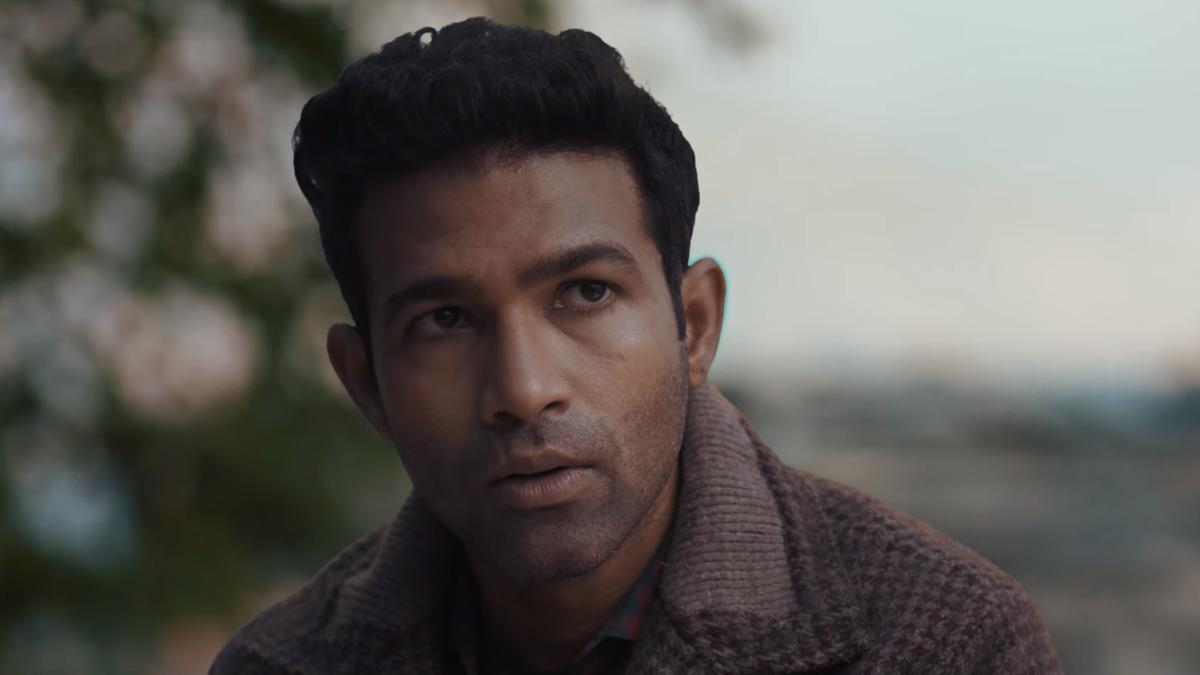
Our society continues to grapple with the uncomfortable truth that sexual exploitation knows no gender boundaries. This pervasive issue is frequently overlooked in mainstream cinema, where the sexual manipulation of boys is either ignored or utilized as a comedic element. In stark contrast, “Pushtaini,” a low-budget film with a powerful message, boldly addresses this topic. The film opens on a set where Aryan Shaw (played by Vinod Rawat), a struggling actor, finds himself in a challenging situation, splayed out on a couch and struggling to deliver his lines.
Aryan’s struggle can be likened to an emaciated cat attempting to roar like a tiger. The vulnerability of his character, Bhupinder or Bhuppi, seeps through, revealing a simple mountain boy hidden beneath a veneer of forced confidence. The audience soon realizes that the film set itself may symbolize the exploitative journey Bhuppi has endured. Having navigated the murky waters of the casting couch—a grim metaphor for trading sexual favors for career opportunities—Bhuppi finds himself ensnared by a manipulative line producer who possesses a damaging video capable of ending his career.
Ironically, it is this sense of entrapment and frustration that ignites a newfound authenticity in Bhuppi’s performance, as the film’s hero, played by Rajkumar Rao, advises him to tap into his genuine emotions. Until this moment, Aryan and Bhuppi have been two disparate entities, but their convergence becomes pivotal.
Seeking to break free from this toxic cycle, Bhuppi retreats to his ancestral homeland in Uttarakhand. The breathtaking vistas of the region provide a backdrop against which Bhuppi’s repressed memories and unresolved traumas resurface. The film’s title, “Pushtaini,” begins to reveal its significance as Bhuppi confronts deeply rooted issues, notably his fraught relationship with his deceased father. There is also the added burden of a sister who accuses him of abandoning the family and an aunt who blames him for his father’s untimely death. Compounding these familial tensions is a will controlled by his father’s former employer, Yashpal (Mithilesh Pandey), whom Bhuppi avoids due to a traumatic childhood experience that left indelible scars on his psyche. The film cleverly uses the intertwined soundscape and landscape to enhance its narrative depth.
.
As Bhuppi embarks on a journey to uncover his truth, he encounters Dimple, a life coach portrayed by Rita Heer. Dimple, also grappling with her own unresolved childhood issues, becomes a crucial companion in Bhuppi’s quest. Their contrasting coping mechanisms are starkly depicted: while Bhuppi shuns intoxication to maintain his fragile facade, Dimple resorts to weed and vodka to navigate her emotional turmoil and the harsh realities of the landscape.
The film injects humor and lightness through the character of Hemant (Hemant Pandey), a taxi driver and Bhuppi’s childhood friend. Hemant embodies the archetype of small-town men who harbor traditional views on women’s roles and choices, injecting moments of levity into the otherwise intense narrative.
Vinod Rawat’s portrayal of Bhuppi/Aryan is marked by a gentle intensity that brings depth to the character. Rawat is not only the lead actor but also the film’s director, producer, and co-writer. Through the character’s journey, the film addresses broader socio-economic issues such as unemployment, migration, and the economic hardships faced by people in the hills. These struggles make the population vulnerable to various forms of exploitation, subtly woven into the narrative without overshadowing the main theme.
“Pushtaini” explores how ancestral issues persist across generations, indicating that time and place do little to alleviate the deep-seated trauma experienced by those on society’s margins. Rawat skillfully depicts Bhuppi’s journey of self-reconfiguration, creating a compelling narrative that refrains from seeking charity for being an indie film.
While “Pushtaini” possesses qualities of a personal student film, with a pulsating emotional core, it does have its shortcomings. The film occasionally suffers from loosely connected writing and acting, with sequences where raw, emotional expressions sometimes work in its favor and at other times fall flat due to heavy-handed metaphors.
Nonetheless, “Pushtaini” stands as a noteworthy film, surpassing many of the more polished yet superficial offerings currently in theatres. One can only hope that it breaks through the challenging distribution landscape, dominated by major studio releases and entrenched industry practices.
“Pushtaini” is now playing in theatres, offering audiences a rare and poignant look at male sexual exploitation and the intergenerational traumas that continue to haunt those affected.












